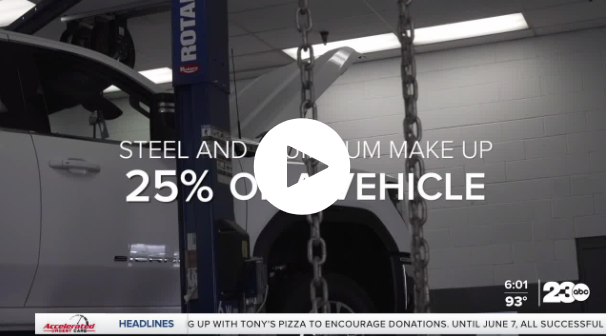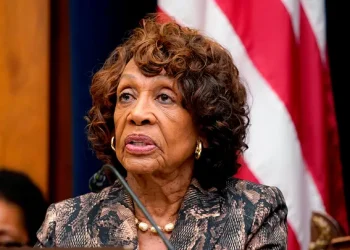With U.S. tariffs on foreign steel and aluminum doubling from 25% to 50%, concerns are growing about the long-term impact on Kern County’s auto market and other imported goods.
At dealerships like Motor City, the pressure is already being felt. Roughly a quarter of every vehicle’s composition relies on steel or aluminum, meaning even small increases in metal costs could lead to noticeable price hikes for consumers.
John Pitre, Chief Operating Officer of Motor City, shared, “We’re a local dealership serving people here in Kern County, and we’re going to absorb those costs to make sure vehicles stay affordable.”
The tariff increase, enacted through an executive order signed by former President Donald Trump, marks the second major rise in import taxes on metals—affecting not only cars, but also housing materials and everyday items like canned goods.
“There is upward pressure on new vehicles,” Pitre said. “Due to tariffs and trade agreements, we know new cars will become more expensive over time.”
To manage rising costs, Motor City has begun adjusting its inventory strategy. “You might find some vehicles in stock without a sunroof. We used to only stock vehicles with sunroofs, but it saves us a thousand dollars,” Pitre noted. “We’re making adjustments—focusing on must-haves instead of nice-to-haves.”
While the goal of the tariff hike is to boost domestic production of car parts, buyers may not feel the full effect immediately. It could take months for the price increases to trickle down to the retail level.
Pitre advises customers to check vehicle labels to understand where cars—and their components—are manufactured. “Potentially, 37% of the parts are built in Canada and another 37% in Mexico,” he explained. “Those components could be subject to tariffs as well.”
For now, dealerships are doing what they can to shield customers from the full impact. But with uncertainties surrounding global trade, the true cost of buying—and repairing—vehicles may become clearer in the months ahead.








